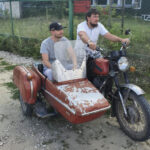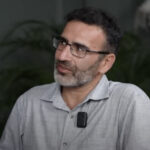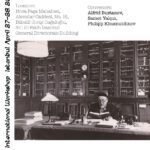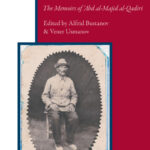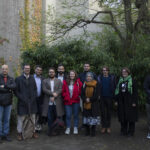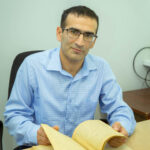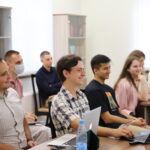LATEST VIDEO
Muslim Subjectivity
A Book Presentation
Alfrid Bustanov presents a new monograph published by the project team.
LATEST NEWS
Can the Anthropology of Islam be Post-Secular?
I would expect a mutual disregard of (semi-) secular scholars and (semi-) religious figures. The former would blame the imams on account of their ignorance. The latter would claim that Orientalists are the enemies of Islam. In our case, however, there is a degree of mutual interest that I, on my behalf, attempt to cherish, develop, and reflect upon. What we see here is that a random exchange over matters of exegesis has morphed into a debate at the intersection of Western academia and mujaddidi reasoning. I find it crucially important that one and the same manuscript can produce alternative readings, which become themselves generative of an intellectual conversation in the crucible of a post-secular environment. Neither side can claim absolute authority over the text and it is through a dialogic interaction that one can hope to achieve a nuanced understanding of both the historical artefact and its significance in the present among members of a Sufi brotherhood.
Shamil Shikhaliev’s interview on Soviet Islam
MIND’s postdoc Shamil Shikhaliev gave an interview on the history of Islam in Soviet Daghestan. This material is part of the podcast NaRakhate, no 19
Ethnography of Book Collections in the Islamicate World
Researchers habitually employ in their work the ‘archives’ of Muslims, be that the private or state collections. Often scholars focus on the concrete sources and do not ask questions about the archival ecology that enables the circulation and preservation of sources. Our seminar places the archival collections in the Islamicate world at the centre of inquiry. We are interested in the provenance research, the organizational forms of archives, the significance of the colonial pasts for the history of book collections as well as the impact of the archival structures on scholarly practices, representation of sources and their marginalization. Our seminar builds on the decolonial thread in rethinking the modern forms of knowledge production in museums, archives, and universities and attempts to reconsider the role of archives in the Islamicate world. Special attention will be paid to individual experiences of the archive builders, their curators and researchers – this is why we speak of the ethnography of book collections.
A New Book on Muslim Subjectivity
The Brill Publishing House has published an edition of memoirs by ‘Abd al-Majid al-Qadiri (1881-1962), a Qur’an specialist who spent fifteen years of his life in Gulag.
The MIND project is hosting an international conference
The Muslim Self: A Transregional History is an international workshop at the University of Amsterdam, December 1-3, 2022
Convenors: Alfrid Bustanov, Roy Bar Sadeh, Galiia Muratova
MIND PhD students took part in the NISIS Autumn School
The NISIS Autumn School 2021 “Islamic(ate) Classics From Manuscript to the Digital Age” took place in Leuven in 8-12 November 2021. The school was co-organized and hosted by Faculty of Arts at the KU Leuven, the Research Group of Arabic and Islamic Studies and Leuven Centre for the Study of Islam and Society (LCSICS). The topic of the […]
Shamil Shikhaliev on Islamic Education in Late Socialist Daghestan
“Meanwhile several years passed, and somehow, while going through my old books, I came across my notebook. I thumbed through it and immediately recalled the world of Arabic fairy tales in which I had been immersed, and decided to resume studying Arabic. So in 1990 I asked my grandfather to teach me Arabic again. With a cheerful chuckle, he replied: “Last time it did not work out, let’s see what happens this time.” Since I was still in school, I could see him only during weekends. I took lessons from him and did my assignments during the week until the next weekend. This time, learning the Arabic alphabet began with Mu‘allim Sani, a textbook by the Tatar modernist intellectual Ahmad Hadi Maqsudi.”
The Summer School ‘Islam in Russia V: Muslim Subjectivity in the City’
Our project prioritizes the valorization of academic knowledge and the development of international scholarly networks among the young researchers. From 15th to 22nd of August 2021, the Fifth Summer School ‘Islam in Russia: Muslim Subjectivity in the City’ took place in Kazan.
